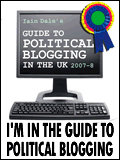BBC backs Moyles over 'gay' phrase
The word "gay" now means "lame" or "rubbish" among young people and need not be offensive to homosexuals, the BBC Board of Governors has ruled.
A complaint against Radio 1 presenter Chris Moyles after he dismissed a ringtone by saying, "I don't want that one, it's gay", was rejected by a committee of the Board of Governors.
The word "gay", in addition to being used to mean "homosexual" or "carefree", was often now used to mean "lame" or "rubbish", the committee said in a ruling. This is widespread current usage of the word among young people, they said.
In broadcasting on Radio 1's flagship Breakfast Show, the committee said, the presenter would have been using expressions or words which the listeners used themselves.
"The committee acknowledged that this use of the word 'gay' could cause offence to some listeners," it said. "However, the committee believed that Chris Moyles, when using the word, had meant no offence to gay people. He was not being homophobic in his use of the word.
But the committee added that it would be "advisable" to think more carefully about using the word "gay" in its derogatory sense in the future, given the multiple meanings of the word in modern usage and the potential to cause "unintended offence".
Stonewall, the lesbian and gay rights group, said the BBC has chosen to ignore the fact that the derogatory use of the word was "very offensive" to lesbian and gay people. Andy Forrest, Stonewall communications officer, said: "Our view would be that the majority of gay people do find the use of gay as a derogatory term very offensive.
The committee also dismissed two other complaints from the same man that it had failed to take abusive comments about gay men by a rap artist broadcast on Jo Whiley's Radio 1 show seriously, and that a sketch on the Catherine Tate show about a gay man was offensive.
The complainant alleged the BBC failed to take seriously enough remarks made by the rap artist Jayceon Taylor (aka The Game) on Jo Whiley's Radio 1 show, in which he described gay men as "faggots" and "not real men" during an interview. "The committee agreed with the complainant that The Game's comments were very offensive, completely unacceptable and clearly homophobic," the committee ruled. "However, it also noted that the presenter, Jo Whiley, was swift to make a full apology for what had been said and to distance herself and the network from The Game's comments." The presenter showed "courage" and presence of mind in making such a "sincere, full and swift apology", it said.
The complaint about the Catherine Tate show had singled out a character Derek Faye, an overtly effeminate man constantly outraged at the widespread assumption that he is gay. The complainant had taken offence that the viewers were invited to laugh at the character's campness and "obvious" gayness. Dismissing the complaint, the BBC governors ruled: "The purpose of the sketches was to be funny, not realistic. The committee noted that the series was dominated by a number of extreme, ridiculous characters who were not meant to be taken literally or too seriously.
'Confession' time, I myself frequently use the term 'gay' to ridicule both the camp and cheesy, but that does not mean that I am anymore prejudiced against homosexuals than I am against other sexual orientations (despite what some idiots like Paul Seacombe have claimed). I also remember a time when 'gay' was used to describe both happiness and being carefree, as anyone who has watched The Flintstones or visited Paris would know. Even homosexuals have called each other 'gay' as a term of endearment.
Unfortunately, liberals such as Jo Salmon have actively sought to criminalise the use of the 'gay' outright by non-homosexuals because a vocal minority have chosen to use it as a term of abuse. It is not hard to imagine uptight killjoys like Ms. Salmon lying awake at night thinking of ways to label anyone who uses the term 'gay' and is not homosexual a homophobe. Instead of embracing the positive aspects of the term 'gay', Ms. Salmon and others are openly looking to be offended when good old common sense (remember that?) clearly shows that no offence is ever meant because it gives them a chance to play the 'persecution card' in a game of political football and boost their own self-important egos.









5 comments:
"liberals such as Jo Salmon have actively sought to criminalise the use of the 'gay' outright by non-homosexuals because a vocal minority have chosen to use it as a term of abuse."
Oh for crying out loud.
I want to work towards a society where we do not hold prejudices or biases against other people because of their sexuality. And that means speaking out when someone is being offensive.
But when have I ever sought
"criminalise the use of the 'gay' outright by non-homosexuals"? Not only is the "criminalise" bit comlete rubbish, but if what you say is true (and it's not), answer me this - why on earth would I want to ban a straight person from saying something like "gay equality" or "gay bar" or "gay pride"?!!
Get your facts straight in future before you leap in and libel someone...
Maybe you would like to think a little about the impliactions of equating "gay" to "rubbish" on the psycology of gay people. Or maybe you think that images like the golliwog are acceptable too.
Chris Moyles is not homophobic and i agree with the ruling of the board of governors. the word gay does now mean bad or rubbish, just like it used to mean being happy. Meanings of words change, especially with younger generations.
There are lots more example of words having changed meanings, such as "safe" that now means cool or good or nice one.
Does that mean that people should never have stopped using the "N" word?
The fact that words change does not justify the BBC supporting the use of such a word which endorses or promotes discrimination against a minority.
This is not libel Jo, it is public knowledge and many witnesses would come forward to confirm my statement.
Post a Comment